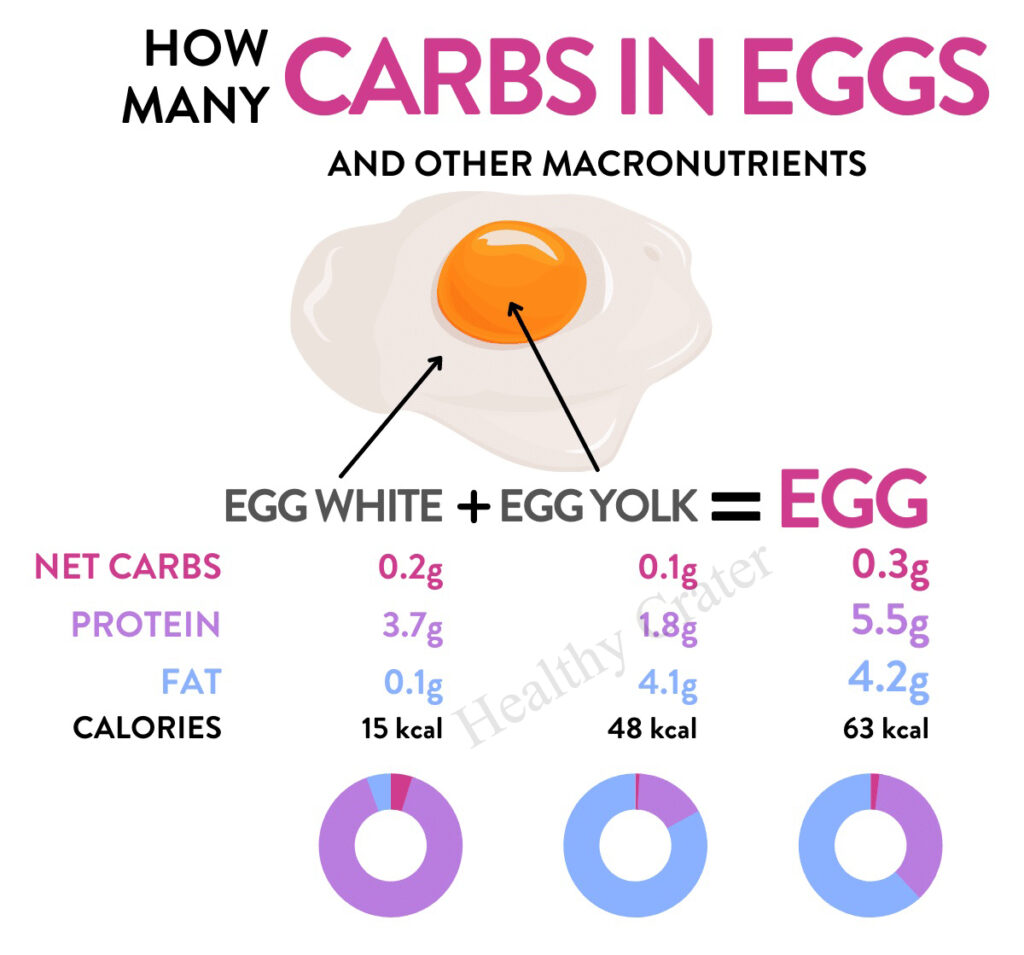Eggs are a highly nutritious food, providing a range of essential nutrients. Here’s a detailed look at the nutrition facts for one large egg (approximately 50 grams) and the benefits of including eggs in your diet:
Nutritional Information (per one large egg, 50 grams)
- Calories: 72 kcal
- Protein: 6.3 grams
- Total Fat: 4.8 grams
- Saturated Fat: 1.6 grams
- Monounsaturated Fat: 1.8 grams
- Polyunsaturated Fat: 1.0 grams
- Cholesterol: 186 mg
- Carbohydrates: 0.6 grams
- Sugars: 0.5 grams
- Vitamin A: 270 IU (5% of the Daily Value)
- Vitamin D: 41 IU (10% of the Daily Value)
- Vitamin B12: 0.6 mcg (10% of the Daily Value)
- Riboflavin (B2): 0.3 mg (15% of the Daily Value)
- Folate (B9): 24 mcg (6% of the Daily Value)
- Iron: 0.9 mg (5% of the Daily Value)
- Calcium: 28 mg (2% of the Daily Value)
- Phosphorus: 99 mg (10% of the Daily Value)
- Selenium: 15.4 mcg (22% of the Daily Value)
- Choline: 147 mg (27% of the Adequate Intake)
Benefits of Eating Eggs
- High-Quality Protein:
- Eggs provide high-quality protein, which contains all nine essential amino acids necessary for the body’s growth and repair.
- Rich in Essential Nutrients:
- Eggs are a good source of vitamins and minerals, including vitamin A, vitamin D, vitamin B12, riboflavin, and selenium.
- Supports Eye Health:
- Eggs contain antioxidants like lutein and zeaxanthin, which are beneficial for eye health and may reduce the risk of cataracts and macular degeneration.
- Promotes Brain Health:
- Choline, found in eggs, is crucial for brain development and function. It plays a significant role in maintaining the structure of cell membranes and neurotransmitter synthesis.
- Supports Heart Health:
- While eggs contain cholesterol, they also have nutrients like omega-3 fatty acids and antioxidants that may support heart health. For most people, dietary cholesterol has a minimal effect on blood cholesterol levels.
- Aids in Weight Management:
- Eggs are low in calories but high in protein, which can increase feelings of fullness and help reduce overall calorie intake, aiding in weight management.
- Muscle Development and Repair:
- The high protein content in eggs is essential for muscle development and repair, making them a great food choice for athletes and active individuals.
- Bone Health:
- Eggs provide vitamin D and phosphorus, which are important for maintaining healthy bones and teeth.
Conclusion
Eggs are a versatile and highly nutritious food that can be included in various meals throughout the day. They offer numerous health benefits, including high-quality protein, essential vitamins, and minerals that support overall health. Whether boiled, scrambled, poached, or made into an omelet, eggs are a valuable addition to a balanced diet. However, individuals with specific health conditions, such as those with hypercholesterolemia, should consult their healthcare provider for personalized dietary advice.





